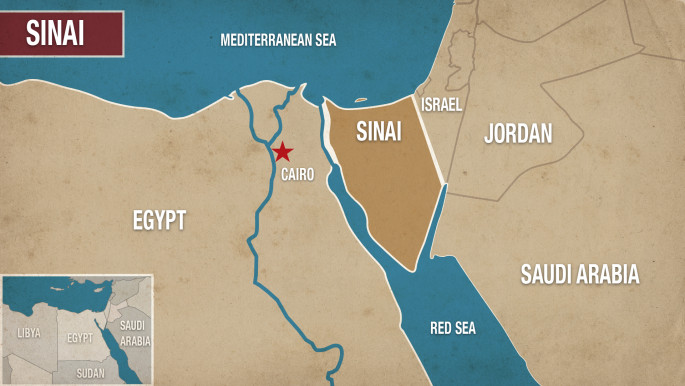HRW: Possible extrajudicial killings taking place in Sinai
Egypt's security forces may have extrajudicially executed at least four in January 2017 as part of a campaign against an affiliate of the Islamic State group in the Sinai Peninsula, Human Rights Watch said on Thursday.
The security forces may have arbitrarily detained and forcibly disappeared the men, who could be as many as 10, and then staged a counterterrorism raid to cover up the killings, the rights watchdog said.
"These apparent extrajudicial killings reveal total impunity for Egypt's security forces in the Sinai Peninsula under President Abdel Fattah al-Sisi's counterterrorism policies," said Joe Stork, deputy Middle East and North Africa director at Human Rights Watch.
"Prosecutors need to conduct a full and transparent investigation to get to the bottom of what appear to be grave abuses."
The HRW report is based on documents, interviews with relatives, and an edited video of the purported raid made public by the authorities.
In mid-January, the interior ministry claimed in a statement that its counterterrorism forces had tracked a group of suspected IS fighters to an abandoned house in al-Arish, a town on the northern Sinai coast, and were preparing to raid the house when they came under fire.
According to the statement, the troops returned fire and killed all 10 suspects inside.
On the same day, the ministry released a heavily edited short video purporting to show the raid itself.
Stefan Schmitt, the director of the international forensic program at Physicians for Human Rights, told HRW that the video was too heavily edited to be taken as a credible depiction of the authorities' story.
 |
| [Click to enlarge] |
According to Schmitt, the positioning of the bodies and blood inside the house raised the suspicion that at least one of the bodies had been moved prior to the videotaping.
The killings outraged citizens of al-Arish and provoked rare protests against the interior ministry during some of the men's funerals.
Local tribal leaders met on 14 January to form a "popular committee" and issued a list of demands, including the immediate release of anyone held without charge, the resignation of North Sinai's representatives in parliament, and holding to account those responsible for the killings.
One North Sinai MP called for the creation of a government fact-finding committee to investigate the incident.
Egyptian police have previously been accused of carrying out extrajudicial executions. Last year, they claimed to have killed a "criminal gang" responsible for the murder of Italian student Giulio Regeni.
This account by Egyptian authorities has been largely dismissed by the families of the gang members, Regeni's family, Italian investigators and even by Egyptian prosecutors, who denied that there was a link between the gang and the student's death.
Egypt has been battling a growing militant insurgency since the military overthrow of Islamist President Mohammad Morsi in 2013.
Most of the attacks, which have killed hundreds of police and army officers and soldiers, have taken place in north Sinai, which borders Israel and the Palestinian Gaza Strip, though attacks have reached Cairo.![Egyptian army Sinai [AFP] Egyptian army Sinai [AFP]](/sites/default/files/styles/image_345x195/public/media/images/3639BFFD-D19E-4CD5-925A-33071DB67552.jpg?h=d1cb525d&itok=lCH93lgf)




 Follow the Middle East's top stories in English at The New Arab on Google News
Follow the Middle East's top stories in English at The New Arab on Google News


